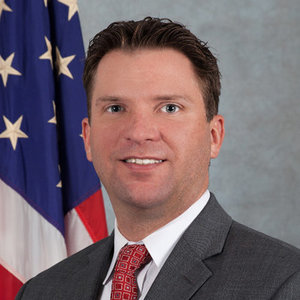If we as an industry learn anything from battling the COVID-19 pandemic, David Burrow, PharmD, JD, director of the Office of Scientific Investigations, Office of Compliance, Center for Drug Evaluation and Research at the U.S. Food and Drug Administration (FDA), has something high atop his wish list. “I hope we recognize the need to build quality into clinical research from the initial concept all the way through to operations,” Burrow says.
“The pandemic demonstrated the need for training and focus on Good Clinical Practices, and not just for ideal situations, but for when things go sideways” such as during the pandemic, adds Burrow, who will offer insights on how to handle FDA Form 483s (Inspection Observations) and Warning Letters, along with shout outs to his FDA colleagues for a job well done, in a session for the ACRP 2021 virtual conference in September.
“The work of FDA inspectors during the pandemic was phenomenal,” Burrow says, noting how they helped avert “what might have been a catastrophic slowdown” in inspections and the overall drug approval process.
Burrow also applauds the results of an FDA report issued in May, “Resiliency Roadmap for FDA Inspectional Oversight,” outlining the agency’s inspectional activities during the COVID-19 pandemic and its detailed plan to move toward a more consistent state of operations.
“Like most organizations around the world, the FDA experienced unprecedented and unique challenges during the SARS-CoV-2 pandemic. In particular, our inspection, surveillance, and compliance activities were significantly impacted,” acting FDA Commissioner Janet Woodcock, MD, said when releasing the report. “The FDA fully understands the importance of getting back to a more consistent state of inspectional capacity. This plan provides the public with a transparent picture of both the successes and challenges we’ve faced in these areas over the past year, as well as our plan moving forward. We want to assure the American public that we have used a variety of tools to oversee the regulated industry and ensure that Americans continue to have access to safe food and high-quality, FDA-regulated products.”
However, it’s not just the pandemic that has challenged the clinical trial industry, Burrow adds. He cites workforce shortages and high turnover rates in some areas of the clinical trial enterprise as potential obstacles. “ACRP’s Partners in Workforce Advancement initiative has been making this important point for some time,” says Burrow, a member of the initiative’s executive committee. Given trends in workforce turnover, in particular, Burrow believes training and educational programs such as the ACRP 2021 virtual conference are more vital than ever before, because new entrants need to learn the best ways to conduct quality clinical trials.
Still, if many things have changed since the pandemic upended the clinical trial industry, Burrow can point to one area that hasn’t altered an iota: The importance of timely responses to FDA Form 483s and Warning Letters. “That hasn’t changed at all because of COVID,” he says.
Author: Michael Causey



